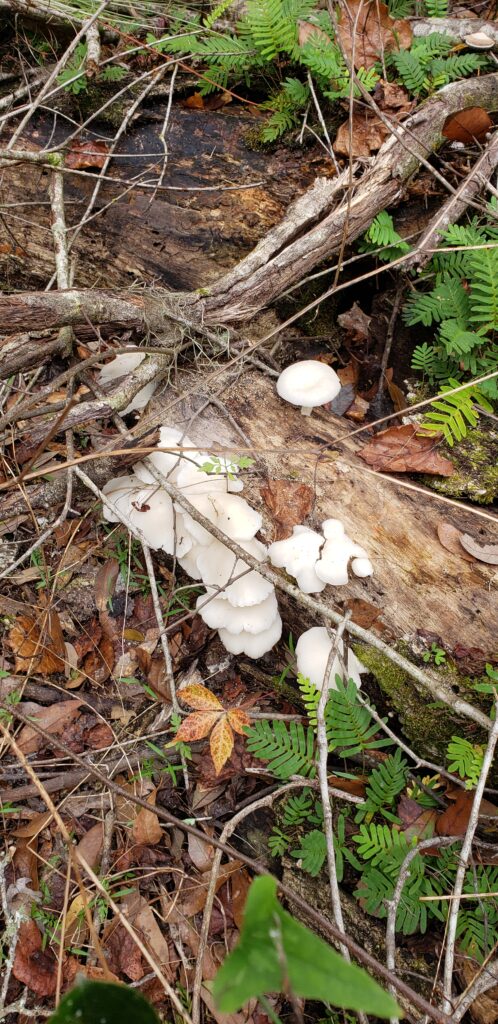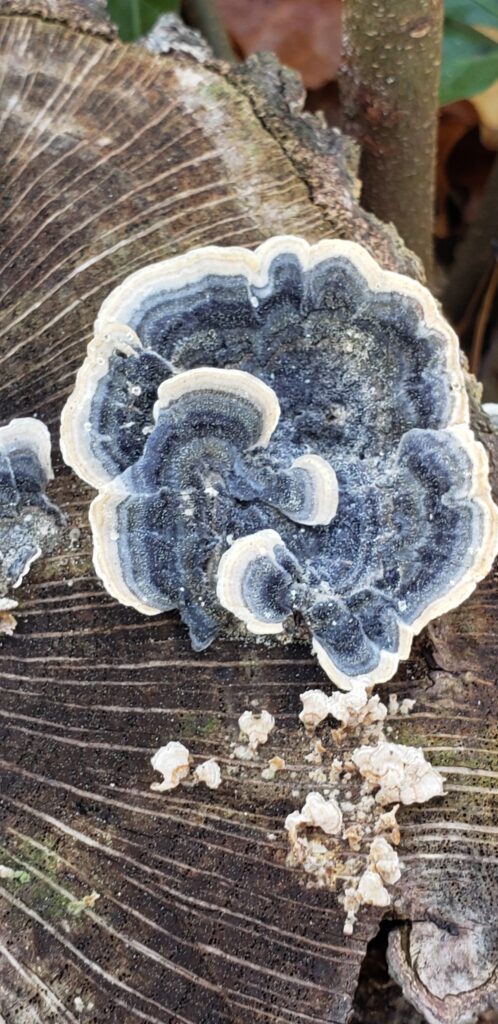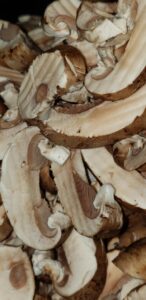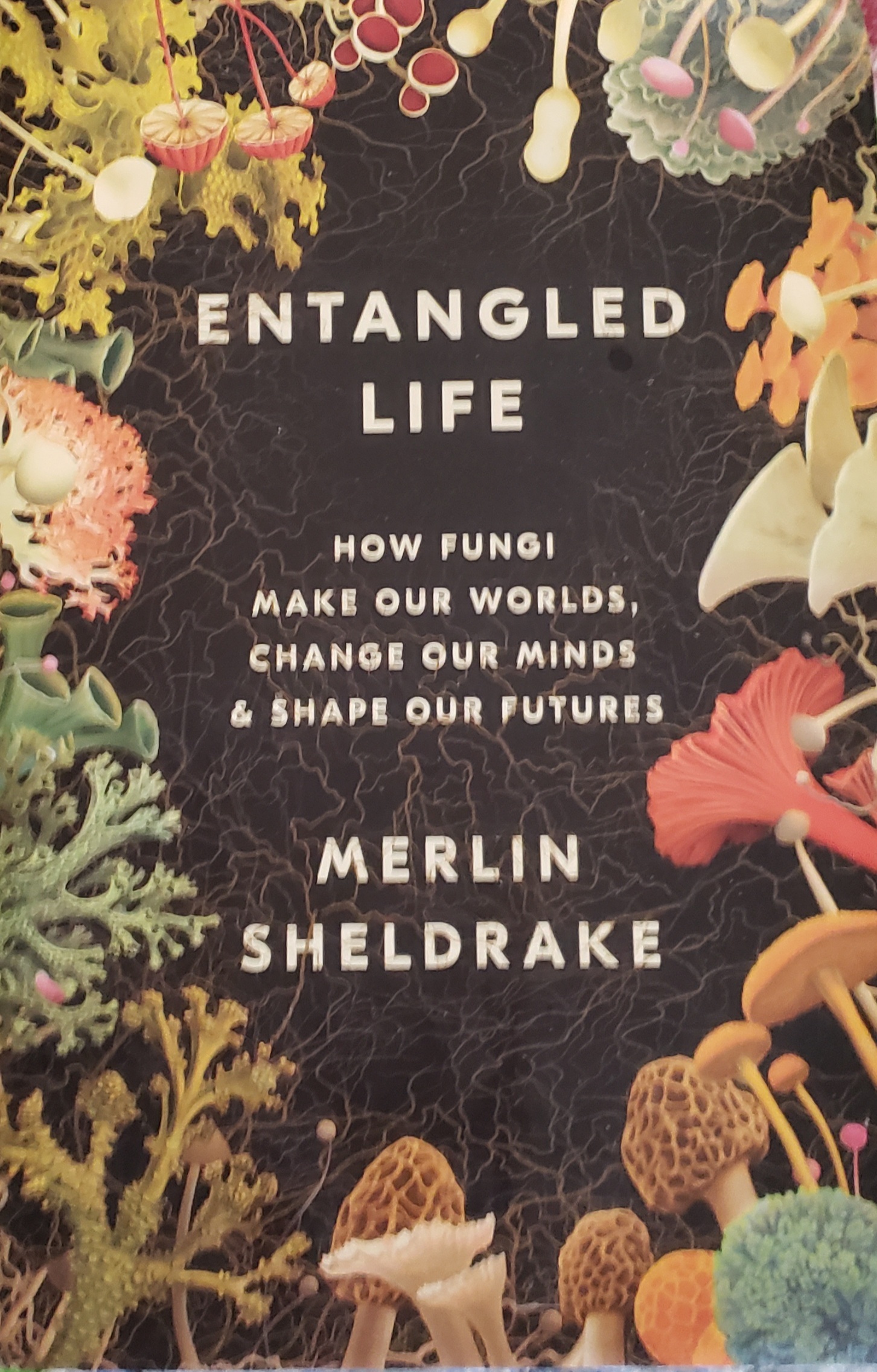Just as I was completing my undergraduate degree (Psychology, University of Central Florida, thanks!), Michael Pollan released The Botany of Desire, a book about plants and how, while we think we are manipulating them, they might actually be changing human behavior. It was a book that ignited a spark for me, and I’ve never looked at human behavior in exactly the same way. I think of this book often, and often when the subject matter is not related to plants, but instead is some perspective-shifting topic.
Entangled Life, by Merlin Sheldrake, is another spark-igniting book that is frequently called to mind by everyday occurrences. Since childhood, Sheldrake has been fascinated with fungi, and his passion is evident. While we may overlook the over 2 million species of fungi living in the soil, in the air, and even inside rock, Sheldrake has engaged with them and brings new knowledge and the beginnings of understanding to every page.

I loved how this book moved from hard science to anecdotes to quotes from contemporary musicians and philosophers and back again. Even the illustrations were originally drawn with ink made from mushrooms! To me, this is a demonstration of his hypothesis that the fungal hyphae and mycelial tissue are agents of communication, that they can transmit and receive signals from each other and even from other plants. Many trees over wide areas appear to signal each other using fungi in a network he calls the Wood Wide Web.

Almost all plants depend on fungi for a ready supply of minerals, and nearly all fungi receive nutrients from plants which can photosynthesize. In the lab, if you cut the fungal filaments and remove the food supply, new filaments grow directly toward where food previously existed – a process that looks like conscious behavior or even memory. But Sheldrake points out that to think of the process in this way is probably anthropomorphizing fungus, and that we do not yet understand exactly what is happening and why. Heck, we may not even have the language yet to describe what’s going on.

How exciting is this! If you believe, as I do, that all of life is an interdependent web (Thank you, Unitarianism), then these processes and the questions of self and not-self make perfect sense viscerally even though they are not fully understood intellectually. We have long understood the role fungi play as decomposers, but Sheldrake opens a window onto a world where they have an even more important role as builders and facilitators.
What a surprise to learn that this is Sheldrake’s first book. . .if we are very fortunate, it will not be his last.

